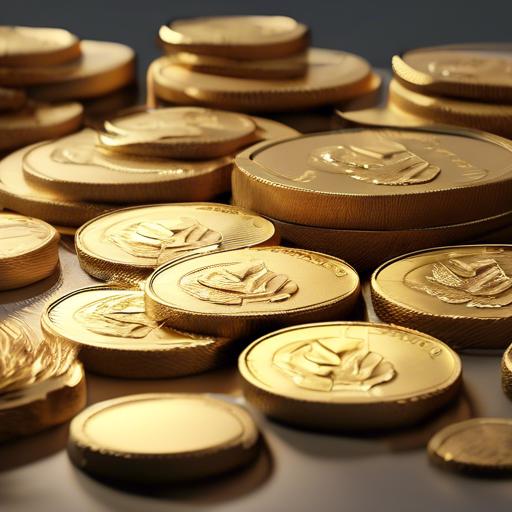hey there, sports fans! Have you ever wondered if those shiny Olympic gold medals are actually made of solid gold? Well, you’re not alone! In this article, we’re going to dive deep into teh captivating world of Olympic history and find out the truth behind the coveted gold medal. So grab your popcorn and get ready for some Olympic-sized knowledge!
Are Olympic Gold Medals Really Solid Gold?
When athletes compete in the Olympics, their ultimate goal is to win a coveted gold medal. But have you ever wondered if these prizes are actually made of solid gold?
Believe it or not, Olympic gold medals are not entirely composed of gold. While they do contain a certain amount of this precious metal, they are actually made mostly of silver. Each medal is required to have a minimum of 6 grams of gold plating, wiht the rest of the composition being sterling silver. So, the next time you see an athlete proudly displaying their gold medal, remember that it’s not all gold!
The Composition of Olympic Gold Medals Revealed
Many people believe that Olympic gold medals are made entirely of gold, but the truth is a bit more elaborate than that. In fact, gold medals awarded at the olympic Games are not solid gold at all. Instead, they are made mostly of silver and are then plated with a thin layer of gold.
According to the International Olympic Committee, Olympic gold medals must contain at least 92.5% silver, with a minimum of 6 grams of gold used in the plating process. the exact composition of the medals can vary slightly from year to year, but they all follow these general guidelines.
Debunking the Myth: Why Olympic Gold Medals Are Not Pure Gold
Many people are under the impression that Olympic gold medals are made entirely of pure gold, but this is actually a common misconception. In reality, Olympic gold medals are not solid gold and have not been as the 1912 Stockholm Olympics.While the gold medals do contain a certain amount of gold, they are actually made mostly of silver and only plated with a thin layer of gold.
So, why are Olympic gold medals not pure gold? The main reason is practicality. Solid gold medals would be far too expensive to produce, especially considering that hundreds of medals are awarded at each Olympic Games. By using a combination of gold and silver, the medals are more affordable to make while still maintaining the prestigious appearance of a gold medal.Plus, the silver base makes the medals more durable and less likely to tarnish over time.
Tips for Understanding the True Value of Olympic Gold Medals
Have you ever wondered if Olympic gold medals are actually made of solid gold? Contrary to popular belief, Olympic gold medals are not made entirely of gold. In fact, since the 1912 Olympics, gold medals have been made mostly of silver with a thin coating of gold. The exact composition can vary, but most gold medals contain about 6 grams of gold, making up just over 1% of the total weight. The majority of the medal is silver, which provides the bulk of its value.
So, what gives Olympic gold medals their high value? It’s not necessarily the materials they are made of, but rather the significance and symbolism behind them. Winning an Olympic gold medal is a testament to an athlete’s hard work, dedication, and skill. It represents the pinnacle of athletic achievement and is a symbol of excellence in sports. While the actual gold content might potentially be minimal, the true value of an Olympic gold medal lies in the blood, sweat, and tears that went into earning it.
Q&A
Q: Are Olympic gold medals really made of solid gold?
A: Nope, surprisingly they’re not solid gold at all!
Q: So what are they made of then?
A: Olympic gold medals are actually mostly made of silver, with just a thin layer of gold plating.
Q: Why is that?
A: This is because pure gold is too soft to be used for such large and intricate designs, so adding silver gives the medal durability.
Q: How much gold is in an Olympic gold medal?
A: The gold plating on a medal is required to be at least 6 grams, but the total weight of the medal can vary.
Q: Do athletes know this when they’re competing for gold?
A: Most athletes are aware that the medals aren’t pure gold, but the prestige of winning an Olympic gold medal is still huge regardless of its composition.
Q: Are there any solid gold Olympic medals out there?
A: Yes, before 1912, Olympic gold medals were actually made of solid gold. So if you find one of those, you’ve hit the jackpot!
In Retrospect
Well, there you have it folks! Olympic gold medals may not be solid gold, but they are still the ultimate prize for athletes around the world.Next time you watch the Olympics, remember that it’s not just about the bling – it’s about the blood, sweat, and tears that go into earning that coveted medal. Stay tuned for more fascinating facts and news from the world of sports. Until next time, keep reaching for your own gold medal moments!


